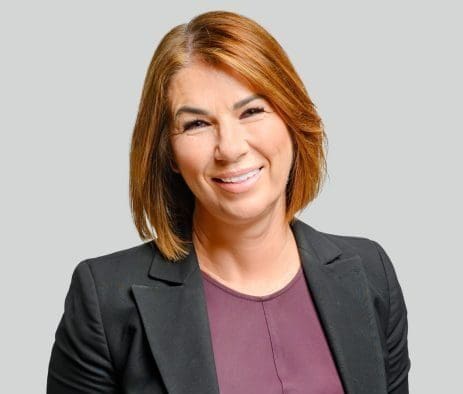“Changing entrenched patterns of drug-using behaviour is difficult, requires concerted effort and a range of internal and external resources,” a report by a group of leading clinicians said.
These are the words of people whose life’s work has been in supporting the treatment and recovery of people facing problem drug use, the clinicians who collaborated to draw up the Department of Health’s ‘Drug misuse and dependence UK guidelines on clinical management’. People who really know.
And within those few words there is a lot to take on board. Yes, breaking the cycle of drug use is tough. It takes courage, determination and an acceptance that you may stumble. The statement also confirms that you need help to achieve an end to drug dependence, but, vitally, that it can be done.
It is possible to stop taking drugs and move into a substance free future. Many people have done it and you can too.
Seek help on how to stop taking drugs
“The effectiveness of well-delivered, evidence-based treatment for drug misuse is well established,” the drug misuse and dependence UK guidelines on clinical management says.
“UK and international evidence consistently show that drug treatment – covering
different types of drug problems, using different treatment interventions, and in different
treatment settings – impacts positively on levels of drug use.
“For a significant proportion of those entering treatment, drug treatment results in long-term sustained abstinence.”
That is true of both community based support and residential rehab. But those who complete residential treatment programmes have better outcomes than those who do not, the report states. That is especially true for those who have had previous failures.
Trying to go it alone leaves people vulnerable to failure and relapse, whilst a package of properly considered and tailored support will improve the chances of success and change.

Assessment is key in ending drug use
A thorough and honest assessment of a person’s circumstances and drug use is vital in launching recovery, clinicians agree.
An honest and thorough appraisal of your own situation and drug use is also proven to help engage you in the process of recovery and can actually begin the process of change. The first steps in achieving this can be done alone, but support from a professional assessment will be more comprehensive.
An assessment must take into account the entire person and all the things that influence them and their lives. It is about so much more than just the type of drug used and quantity and frequency of use.
Drug use is not a problem that sits in isolation. It is influenced by everything from social groups to past trauma.
Before you try to stop taking drugs you should undergo an assessment that considers:
- Social factors, such as relationships, living arrangements, employment and finances, dependents.
- Physical health and conditions, including the level of physical dependence to drugs and existence of withdrawal symptoms.
- Your understanding of types of treatment.
- Strengths that may aid recovery, such as positive social networks, and risks to recovery.
The combined presence of alcohol problems increase the risk of treatment being incomplete, but none of this is insurmountable.
Thorough and careful assessment and truly holistic treatment is an integral part of the Delamere approach because we understand this need to consider the whole picture.
Be empowered to stop taking drugs
Experts say treatment for drug misuse and dependence can be seen as a four-phase journey, including:
- Assessment
- Engagement
- Behaviour change
- Early recovery
The aim of treatment is to alleviate dependence, improve health and wellbeing and enable people to move through the stages of recovery.
Our stop, start, grow tailor-made treatment programme takes account of this recovery arc.
Clinicians should be there to empower and help people to make choices about their treatment and goals, identify and tackle problems and then build recovery and resilience.
Find the right culture of support for you
From the very first contact with a treatment provider or addiction rehab service or centre, you’ll begin to get a sense of the culture and approach. These things matter.
The environment care is provided within and the way in which staff and clinicians interact with each other and those in their care, affects outcomes. It’s vital to find the right environment and approach for you.
It’s another point underlined within the ‘Drug misuse and dependence UK guidelines on clinical management’.
It says: “How administrative and clinical staff interact with service users on the telephone or face-to-face at reception or in clinical interactions, how the service ethos is portrayed in literature and communications with service users, and how the environment within which assessment and treatment take place is organised, all have a role in engaging and supporting service users and in avoiding or limiting stigmatisation and stereotyping.”

Call us confidentially at any time to speak to a member of our team.
Call us now: 0330 111 2015
Psychosocial support is vital to stop taking drugs
‘Psychosocial’ support relates to treatment and processes that take account of the relationship between thought processes, individual behaviour and social factors.
These may include cognitive behavioural therapy, other talking therapies and counselling.
Problem drug use can be linked to geography, cultural identity and social networks.
Psychosocial factors must be considered for effective and ongoing recovery. In cases where no medication can be used to aid recovery psychosocial support can take an even greater role.
Mental health impacts on drug use
Up to 70% of people in community substance misuse treatment in the UK are also battling mental illness, the Government’s latest Drug Strategy said.
Conditions such as stress, anxiety, depression and post traumatic stress, as well as things like schizophrenia and personality disorders, are closely correlated with drug dependence.
Attempting to remove and recover from drug dependence without identifying and addressing underlying mental health needs creates increased exposure to failure.
How to stop taking drugs with the aid of medication
Prescribed medications can be used to support withdrawal and avoidance of problematic drugs in some cases.
There are no recommended medication to treat dependency to stimulants such as cocaine, ecstasy and amphetamines or cannabis. There are opiate substitutes, such as the heroin substitute methadone, which can be used to enhance and enable recovery.
Where drugs are being used to dull other symptoms such as emotional or physical pain, other appropriate medications may help.
In some cases a medically supported detox is necessary. Trying to detox alone can be extremely dangerous and uncomfortable if your body has become physically reliant on drugs.
Different approaches to stop taking different drugs
The approach to reduce the unpleasant feelings associated with ending the use of different drugs will vary depending on individual responses and the type of substance that was being used.
Certain withdrawal symptoms are usually associated with certain drugs. Addiction to different drugs can lead to certain symptoms too and all should be identified and managed.
The detail of the best way to come off drugs will depend both on you individually and the substances and combination of substances you use, whether it be cannabis, cocaine, heroin, prescription drugs, painkillers. If alcohol is also a factor it will also influence the approach.
The role of peer support in ending drug use
Research suggests peer support can help maintain recovery for people who are giving up drugs or seeking to maintain recovery long-term.
Alcoholics Anonymous is widely known and similar substance based groups also exist widely, such as Narcotics Anonymous and Cocaine Anonymous. There is also a growing trend for community based recovery cafes and social and sports groups.
The benefits of peer support in recovery include enhanced motivation, improved coping skills, reduced stigmatisation and the positive effects of altruism.
Repercussions of failing to stop taking drugs
The health risks in relation to drug use are real. Overdose remains the main drug-related fatality risk, but drug users also run the risk of premature death due to associated causes.
Other leading causes of drug deaths are suicide, violence, accidents and physical health complications of drug misuse.
Throughout Europe opioid users are 10 times more likely to die than their peers.
It is being predicted that new psychoactive substances/legal highs may lead to more deaths in the future due to their variable compositions, potency and uncertain outcomes.
Parents who have a problematic relationship leads to serious harm to children of all ages, evidence has shown. Effective treatment has major benefits for families.
Most risks are increased when alcohol and drugs are taken in combination.
Reasons to stop taking drugs
Having clear reasons for ending your drug use will help you to remain motivated. Writing your reasons down can help to ensure they remain at the forefront of your mind when the process feels hard.
Reasons to stop taking drugs may include:
- Improving your health
- Improving relationships
- Becoming more reliable
- Gaining more financial security
- Reducing risk of death or other harm coming to you or loved ones
- Getting better sleep
- Gaining a more fulfilling life
- Addressing underlying physical or mental problems your drug use has been masking
Identifying and avoiding situations that lead to drug use for you
Identifying the triggers for your drug use and also making a list of these can help you to stop using and maintain recovery.
Initially you may note when you tend to use. When drug taking has become deeply entrenched you’ll find it has become part of your routine and it’s difficult to isolate or avoid the situations that lead to drug use.
At an earlier stage or once you are in recovery, certain circumstances may make you more likely to use.
You may benefit from avoiding certain places or people, learning how to cope with your emotions and pressure points and gaining new focus in positive activities such as exercise or sports.
Make a plan on how to stop taking drugs
Setting SMART (specific, measurable, attainable, relevant and time-based goals) for putting an end to drug use can help.
These goals need to be small, realistic steps. Keeping a note of them can help you to remain focused and to recognise achievements.
Initial goals may be:
- Making an appointment to see a doctor or calling a treatment service today
- Confiding in a trusted loved one that I have a problem this week
- Undertaking an honest initial self assessment of your own situation within a fortnight
Ask for help on how to stop taking drugs
For further information and details of available support on ending your drug use, contact Delamere.

Call us confidentially at any time to speak to a member of our team.
Call us now: 0330 111 2015








